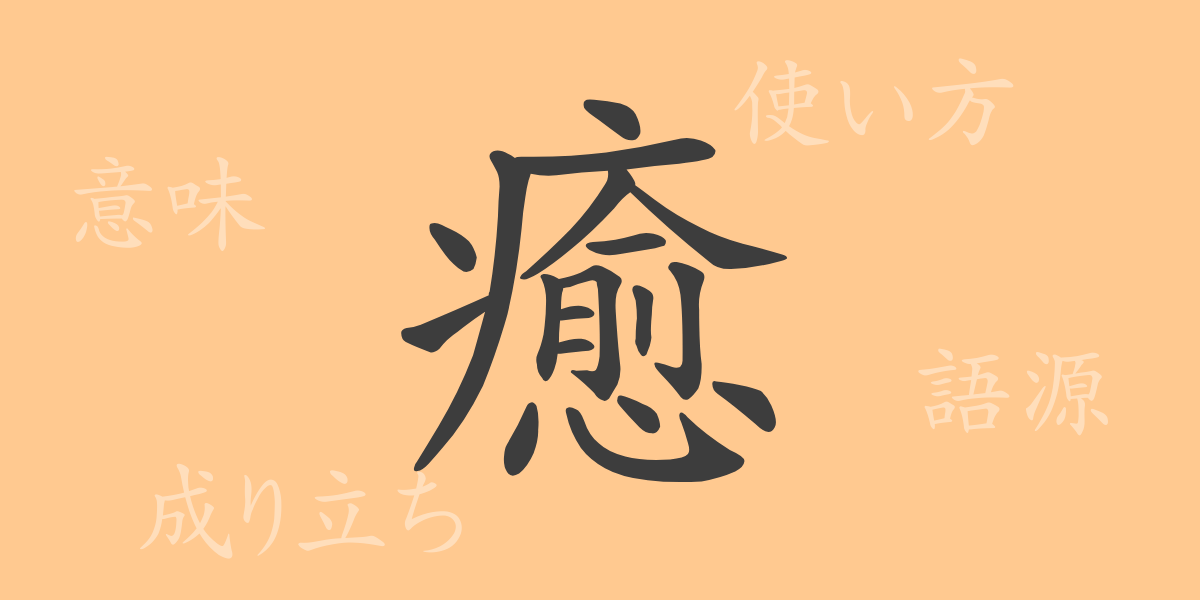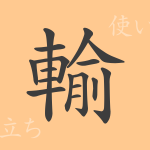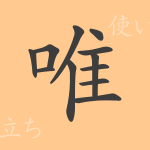Everyone seeks relief from the hustle and bustle and stress of daily life, yearning for peace of mind and body. In such moments, the word we unconsciously utter is “癒し (iyashi).” This article spotlights the commonly used Japanese character “癒 (iyasu),” exploring its profound meaning, usage, and role in Japanese culture.
Origin of 癒 (iyasu)
The kanji “癒 (iyasu)” can be traced back to ancient Chinese oracle bone script. Originally, it meant “to heal from illness,” and over time, it has come to be used in a broader sense to mean “to heal emotional wounds.” This character evolved from healing physical ailments to becoming a word that also comforts the heart.
Meaning and Usage of 癒 (iyasu)
The kanji “癒 (iyasu)” primarily refers to the healing of illnesses or emotional wounds, but in a broader sense, it also signifies relief from various pains and stress. In usage, it appears in contexts seeking relaxation and peace in daily life, such as “心が癒される (kokoro ga iyasareru)” meaning “the heart is healed” or “癒しの時間 (iyashi no jikan)” meaning “a time of healing.”
Reading, Stroke Count, and Radical of 癒 (iyasu)
The kanji “癒 (iyasu)” is also a character beautifully expressed in Japanese calligraphy due to its form and composition.
- Reading: In On’yomi (音読み), it is “ユ (yu),” and in Kun’yomi (訓読み), it is “い.える (i.eru)” and “い.やす (i.yasu)”
- Stroke Count: 13 strokes
- Radical: 疒 (やまいだれ, yamaidare)
Idioms, Proverbs, and Expressions Using 癒 (iyasu)
Idioms, proverbs, and expressions containing “癒 (iyasu)” demonstrate the richness of the Japanese language. For example, “癒着 (ゆちゃく, yuchaku)” refers to an improper and inseparable relationship. On the other hand, “心の癒し (kokoro no iyashi)” means obtaining mental peace and is a commonly used expression in modern society.
Summary of 癒 (iyasu)
The kanji “癒 (iyasu)” is deeply rooted in our lives, symbolizing the health of mind and body. From healing emotional wounds to relieving daily fatigue, “癒 (iyasu)” is used in various contexts and is closely related to the spiritual culture of the Japanese people. This single character embodies the desire for peace and happiness that people seek.

























